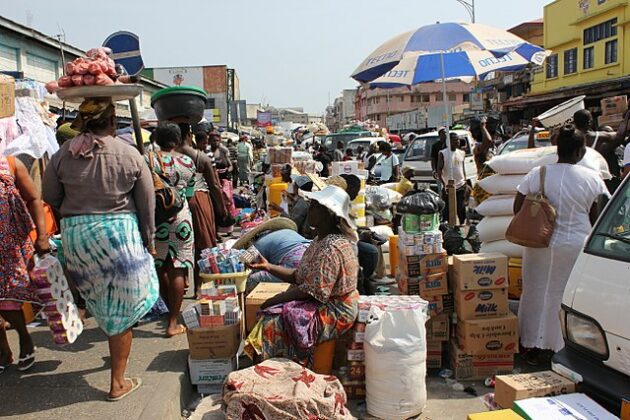Navigating Turbulence: Unraveling the complexities of Ghana’s Economic challenges and charting a course for sustainable growth
Structural issues within key sectors, such as agriculture and energy, also contribute to Ghana’s economic challenges. Inconsistent agricultural productivity and dependence on volatile commodity prices expose the economy to external shocks. Additionally, energy sector inefficiencies, including frequent power outages, hinder industrial growth and deter foreign investment.

Ghana’s economy has faced significant challenges in recent times, leading to concerns about its stability and sustainability. Key factors contributing to the country’s economic downturn include rising inflation rates, a widening fiscal deficit, and external debt pressures.
One major issue plaguing Ghana’s economy is inflation, which has been on an upward trajectory. High inflation erodes the purchasing power of the Ghanaian cedi, impacting the cost of living for citizens and creating uncertainty in the business environment. The government’s efforts to curb inflation through monetary policy measures have shown limited success, raising questions about the effectiveness of current strategies.
- Advertisement -
The fiscal deficit has also been a cause for worry, as government spending has outpaced revenue generation. This imbalance has led to increased borrowing to fund public projects, exacerbating the country’s debt burden. The challenge lies in finding a balance between stimulating economic growth and maintaining fiscal discipline to avoid the pitfalls of excessive debt accumulation.
- Advertisement -
Ghana’s external debt situation further compounds its economic woes. The country has been heavily reliant on external borrowing to finance infrastructure projects and development initiatives. However, the increasing debt levels raise concerns about the sustainability of repayment and the potential impact on the country’s creditworthiness. Addressing this issue requires a comprehensive debt management strategy and a focus on boosting domestic revenue.
- Advertisement -
Structural issues within key sectors, such as agriculture and energy, also contribute to Ghana’s economic challenges. Inconsistent agricultural productivity and dependence on volatile commodity prices expose the economy to external shocks. Additionally, energy sector inefficiencies, including frequent power outages, hinder industrial growth and deter foreign investment.
To navigate these economic challenges, Ghana needs a holistic approach that combines short-term stabilization measures with long-term structural reforms. This includes implementing effective fiscal policies to reduce the deficit, enhancing debt management strategies, and fostering a conducive environment for private sector development. Strengthening institutions responsible for economic governance and promoting transparency will be crucial in restoring investor confidence.
In conclusion, Ghana’s sinking economy requires a multifaceted approach to address its various challenges. A combination of sound fiscal policies, strategic debt management, and structural reforms across key sectors is essential for fostering economic stability and laying the foundation for sustainable growth.
Source:Daily Mail GH
- Advertisement -



